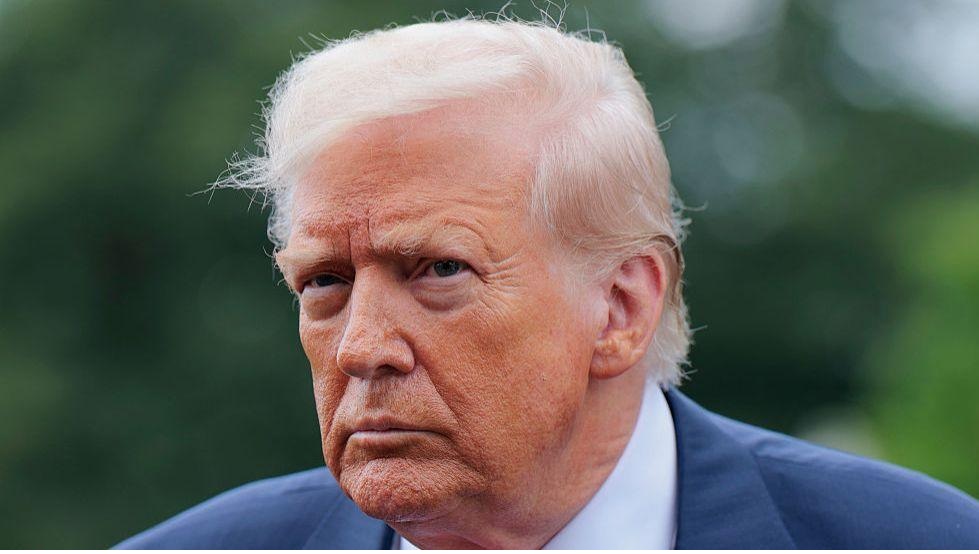A senior Ethiopian official has refuted former U.S. President Donald Trump’s assertion that the United States financed the construction of Ethiopia’s massive dam on the River Nile, calling the claim baseless and harmful.
According to online media sources, Trump recently alleged that the Grand Ethiopian Renaissance Dam (GERD) was constructed “largely with United States money.”
The statement sparked swift reactions in Ethiopia, where the dam is considered a major national achievement.
GERD, now Africa’s largest hydroelectric power project, has been under construction for 14 years and officially began full operations earlier this month.
Throughout its development, Ethiopian leaders have consistently maintained that the project was entirely self-financed.
They claim it was funded by the government and by the Ethiopian people through public contributions, bonds, and diaspora donations.
On Tuesday, Fikrte Tamir, the deputy director of the GERD Coordination Office, categorically denied Trump’s claim.
“The dam was built without any foreign aid,” she said, adding that the former U.S. president’s comments were “false and destructive.”
The GERD Coordination Office, though technically independent, was established by the Ethiopian government to organize and mobilize public resources for the project.
In her statement, Ms. Fikrte urged the government to respond diplomatically but decisively to the allegations made by Trump, emphasizing the importance of preserving Ethiopia’s image and national pride.
While Fikrte’s rebuttal was clear, some Ethiopians have expressed skepticism about how informed the GERD Coordination Office might be regarding any secret or undisclosed agreements between the government and the U.S., given the office’s semi-independent structure.
So far, the Ethiopian government itself has not issued a formal response to Trump’s remarks.
The White House has also not provided clarification or further detail following a request from the BBC.
Trump’s recent statement was not the first time he made such claims.
Last month, on his Truth Social platform, the former president accused the U.S. of “stupidly” funding GERD.
His statement further alleged that the dam significantly reduces Nile water flow into downstream countries like Egypt and Sudan.
Both countries have long voiced concerns that the Ethiopian dam could diminish their critical water supplies.
GERD is located in Ethiopia’s northern highlands, along the Blue Nile, which accounts for approximately 85% of the Nile’s total water flow.
Measuring over a mile in length and standing 145 meters high, the dam is viewed as essential to Ethiopia’s development.
This is especially as nearly 60% of the population lacks reliable access to electricity.
For Ethiopia, GERD represents both an engineering feat and a symbol of national self-reliance.
The government initially projected that the project would be completed in six years, with a budget of $4 billion.
However, construction delays and cost overruns extended the timeline and increased expenses.
Despite the challenges, the Ethiopian public continued to support the project with financial contributions.
To fund the dam, the government implemented a widespread grassroots campaign.
Bonds were issued to state and private companies, employees made monthly salary deductions, and Ethiopians living abroad were urged to contribute.
The campaign was highly successful in tapping into national sentiment.
Even after the dam became partially operational in 2022 and was completed this year, public contributions have not ceased.
According to the GERD Coordination Office, over 1.7 billion Ethiopian birr (approximately $12.3 million) has been raised since April 1 alone, reflecting continued public engagement and pride in the project.
GERD, however, remains a source of regional tension. Egypt and Sudan, both reliant on the Nile’s waters, have expressed alarm over Ethiopia’s control of a crucial water source.
Egypt, in particular, has called for international mediation and has been closely aligned with the Trump administration’s prior stance on the dam.
Ethiopia, on the other hand, insists it has the sovereign right to harness the Blue Nile’s resources to meet domestic energy needs and promote development.
The dam’s completion marks a significant milestone for the nation, but diplomatic challenges with its Nile Basin neighbors are likely to persist.
As geopolitical and environmental concerns remain, the debate over who paid for the dam, and what it represents, continues to stir national and international discourse.







